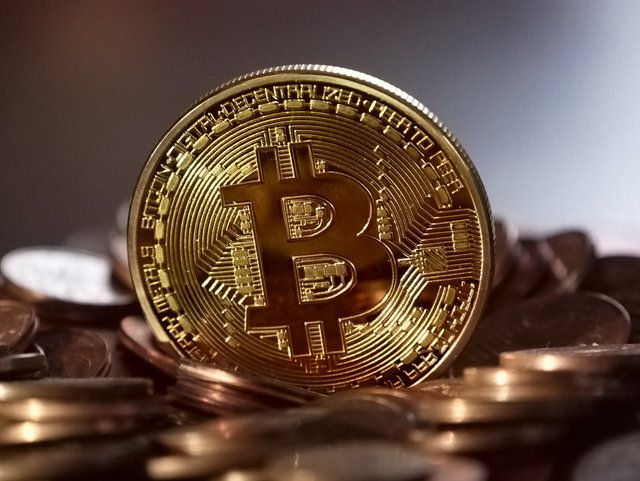
In this article, we will examine what Bitcoin is, how it functions, its benefits, and its potential for the future of digital currency. Bitcoin is a decentralized digital currency that has grown in popularity over the years. It was first introduced in 2008 by an enigmatic person or group operating under the pseudonym Satoshi Nakamoto.
Table of Contents
- What is Bitcoin?
- How does Bitcoin work?
- Advantages of Bitcoin
- Decentralization
- Anonymity
- Security
- Low Transaction Fees
- Fast Transactions
- No Middlemen
- No Chargebacks
- The Future of Bitcoin
- Potential Risks of Bitcoin
- Volatility
- Regulation
- Security
- How to buy Bitcoin?
- Conclusion
- FAQs
What is Bitcoin?
Bitcoin is a decentralized digital currency that is not governed by any one governmental body or financial organization. Using a peer-to-peer network, it enables users to send and receive payments directly from one another. Blockchain technology, a public database that keeps track of all Bitcoin transactions, is used to conduct transactions in the cryptocurrency.
How does Bitcoin work?
A decentralized network of computers is used by Bitcoin to process and verify transactions. Every transaction is added to the blockchain, a shared ledger that is kept on every computer connected to the network. By doing this, transactions are made secure and unchangeable.
A transaction is created and broadcast to the network whenever a user wishes to transmit bitcoin to another user. The network uses intricate mathematical methods to verify the transaction, after which it is uploaded to the blockchain. Those who take part in this procedure, called mining, are rewarded with fresh Bitcoin.
Advantages of Bitcoin
Decentralization
The decentralization of Bitcoin is one of its key benefits. It is immune to government meddling and manipulation because it is not under the jurisdiction of any institution of government or finance.
Anonymity
Because Bitcoin transactions are anonymous, users are not required to disclose their identify in order to complete a transaction. It is therefore a desirable choice for those who value their privacy.
Security
Because Bitcoin transactions are anonymous, users are not required to disclose their identify in order to complete a transaction. It is therefore a desirable choice for those who value their privacy.
Low Transaction Fees
Transaction fees for Bitcoin are far lower than those for conventional payment systems since there is no need for an intermediary to execute transactions.
Fast Transactions
Bitcoin is a quick and effective means to transmit and receive payments because transactions are processed practically quickly.
No Middlemen
It is quick and easy to send and receive payments using bitcoin because transactions are processed virtually quickly.
No Chargebacks
Unlike conventional payment methods, a Bitcoin transaction can neither be cancelled nor charged back after it has been finalized.

The Future of Bitcoin
According to many analysts, Bitcoin has a bright future and will continue to find widespread use. Those who desire to take control of their own funds may find Bitcoin to be an appealing alternative due to its decentralization, anonymity, and security.
Bitcoin is expected to appreciate in value as more and more people use it, making it a potentially lucrative investment. Yet there are also possible concerns connected to Bitcoin, including security, regulation, and volatility.
Potential Risks of Bitcoin (cont.)
Volatility
Bitcoin's value has the potential to be extremely erratic, which means that its price may change suddenly and without warning. Due to the volatility of Bitcoin's value in a short period of time, it may be a risky investment.
Regulation
There are currently limited legal protections for users of Bitcoin because it is currently unregulated in many nations. Due to this lack of regulation, Bitcoin may be susceptible to fraud and swindles, and there is a chance that governments may start to take action against it in the future.
Security
Although encryption is used to secure Bitcoin transactions, there is still a possibility that Bitcoin might be lost or compromised. Users must take precautions to keep their Bitcoin secure, including using strong passwords and keeping it in secure wallets.
How to buy Bitcoin?
There are various methods for purchasing bitcoin, including:
- Online marketplaces for buying and selling bitcoin are known as bitcoin exchanges.
- Bitcoin ATMs - these are actual machines that let people purchase bitcoin with real money.
- Peer-to-peer markets are websites that let consumers acquire Bitcoin straight from other users.
It's crucial to do your homework and pick a reliable platform before purchasing Bitcoin. Also, you should be aware of the dangers and take precautions to protect your Bitcoin.
Conclusion
Decentralized digital currency known as Bitcoin has become very popular in recent years. Those who wish to take control of their funds will find it appealing as a payment option because of its decentralization, privacy, and security. Yet there are also possible concerns connected to Bitcoin, including security, regulation, and volatility. Despite these dangers, a lot of analysts think Bitcoin has a promising future and will keep gaining popularity.
FAQs
- Is Bitcoin permitted?
- Is Bitcoin hackable?
- How can I safely keep my Bitcoin?
- What is the price of Bitcoin right now?
- How can I trade my Bitcoin for cash?